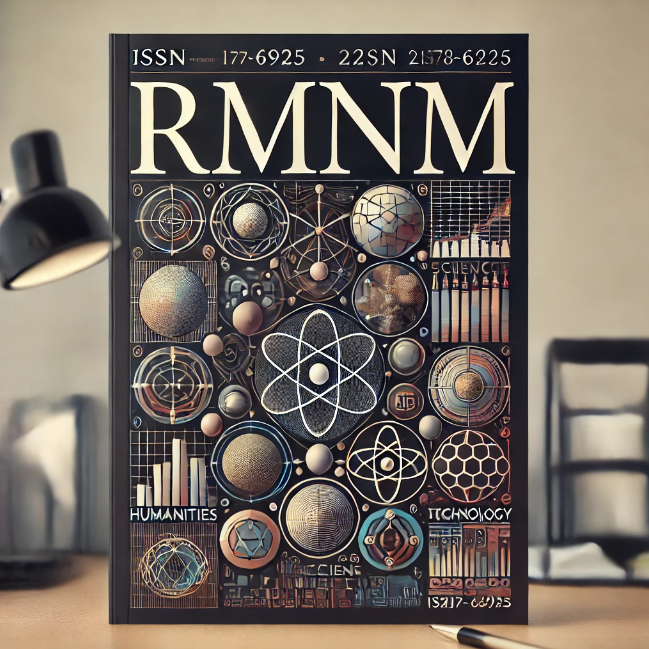SINCPOINT A PROPOSAL FOR A DIDACTIC TOOL TO TEACH CLOCK SYNCHRONIZATION IN DISTRIBUTED SYSTEMS USING THE BERKELEY ALGORITHM
DOI:
https://doi.org/10.61164/rmnm.v12i4.3372Palabras clave:
Distributed Systems, Clock Synchronization, Teaching Tool, Berkeley AlgorithmResumen
In Computer Science courses, the study of distributed systems is fundamental, with clock synchronization being one of its key topics. However, due to its abstract nature, many students find it challenging to grasp how clock synchronization operates in practice. This article introduces SincPoint, an innovative teaching tool designed to address this challenge by simplifying the concept of logical clocks. SincPoint is a web application built with JavaScript that provides an interactive and visual simulation of the Berkeley Algorithm, a widely-used method for clock synchronization in distributed systems. Through a series of tests, it was found that SincPoint significantly enhances students' understanding of clock synchronization, offering a more intuitive and accessible way to learn this complex topic.
Descargas
Referencias
BE-DISTRIBUTED-SYSTEMS. Berkeley Algorithm. GitHub Plataform, 8 Dec, 2023. Available at: https://github.com/BE-Distributed-Systems/BerkeleyAlgorithm. Accessed on: Oct 18, 2024.
COULOURIS, G.; DOLLIMORE, J.; KINDBERG, T.; BLAIR, G. Sistemas Distribuídos: Conceitos e Projetos. 5ª Edição, Porto Alegre, Editora Bookman, 2013.
CRISTIAN, F. Probabilistic Clock Synchronization. Distributed Computing, Spring Verlang, Volume 3, p. 146–158, 1989, DOI: https://10.1007/BF01784024. DOI: https://doi.org/10.1007/BF01784024
GEEKSFORGEEKS. Berkeley’s Algorithm. Tutorial Site Geeks for Geeks, 15 Mar, 2023. Available at: https://www.geeksforgeeks.org/berkeleys-algorithm/. Accessed on: Nov 28 , 2024.
GUSELLA, R.; ZATTI, S. The Accuracy of the Clock Synchronization Achieved by Tempo in Berkeley Unix 4.3bsd. IEEE Transactions on Software Engineering, Volume 15, Issue 7, p. 847–853, 1989, DOI: https://10.1109/32.29484. DOI: https://doi.org/10.1109/32.29484
KUMAR, S. Berkley Algorithm Implementation. Site Tutorialspoint, 8 Feb, 2023. Available at: https://www.tutorialspoint.com/berkeley-s-algorithm. Accessed on: Jun 11, 2024.
LAMPORT, L. Time, Clocks, and the Ordering of Events in a Distributed System. Communication of ACM, Volume 21, Issue 7, p. 558–565, 1978, DOI: https://10.1145/359545.359563. DOI: https://doi.org/10.1145/359545.359563
MORAES, M.; ARAKAWA, K. Berkley Algorithm Simulator. GitHub Plataform, 9 Dec, 2020. Available at: https://github.com/MicaelBarreto/Node-Berkeley-Algorithm. Accessed on: Dec 1, 2024.
RODRIGUES, J. S. R.; LIMA, R. A.; JOSÉ, D. A. M. Algoritmo para Sincronização de Relógios Físicos em Sistemas Distribuídos. Anais da 15ª ERRC, p. 42-49, Setembro 2017.
TAN, D. Berkley Algorithm Simulator. GitHub Plataform, 7 Dec, 2021. Available at: https://github.com/DayuanTan/berkeley-algorithm-implementation. Accessed on: Oct 20, 2024.
TANENBAUM, A. S.; STEEN, M. Distributed Systems. Create Space Independent Publishing Platform, 3rd Edition, 2017.
TANENBAUM, A. S.; STEEN, M. V. Sistemas Distribuídos: Princípios e Paradigmas. São Paulo: Pearson Prentice Hall, 2º ed., 2007.
Descargas
Publicado
Número
Sección
Licencia
Derechos de autor 2024 Revista Multidisciplinar do Nordeste Mineiro

Esta obra está bajo una licencia internacional Creative Commons Atribución-NoComercial-CompartirIgual 4.0.
Autores que publicam nesta revista concordam com os seguintes termos:
- Autores mantém os direitos autorais e concedem à revista o direito de primeira publicação, com o trabalho simultaneamente licenciado sob a Licença Creative Commons Attribution que permite o compartilhamento do trabalho com reconhecimento da autoria e publicação inicial nesta revista;
- Autores têm autorização para assumir contratos adicionais separadamente, para distribuição não-exclusiva da versão do trabalho publicada nesta revista (ex.: publicar em repositório institucional ou como capítulo de livro), com reconhecimento de autoria e publicação inicial nesta revista, desde que adpatado ao template do repositório em questão;
- Autores têm permissão e são estimulados a publicar e distribuir seu trabalho online (ex.: em repositórios institucionais ou na sua página pessoal) a qualquer ponto antes ou durante o processo editorial, já que isso pode gerar alterações produtivas, bem como aumentar o impacto e a citação do trabalho publicado (Veja O Efeito do Acesso Livre).
- Os autores são responsáveis por inserir corretamente seus dados, incluindo nome, palavras-chave, resumos e demais informações, definindo assim a forma como desejam ser citados. Dessa forma, o corpo editorial da revista não se responsabiliza por eventuais erros ou inconsistências nesses registros.
POLÍTICA DE PRIVACIDADE
Os nomes e endereços informados nesta revista serão usados exclusivamente para os serviços prestados por esta publicação, não sendo disponibilizados para outras finalidades ou a terceiros.
Obs: todo o conteúdo do trabalho é de responsabilidade do autor e orientador.






